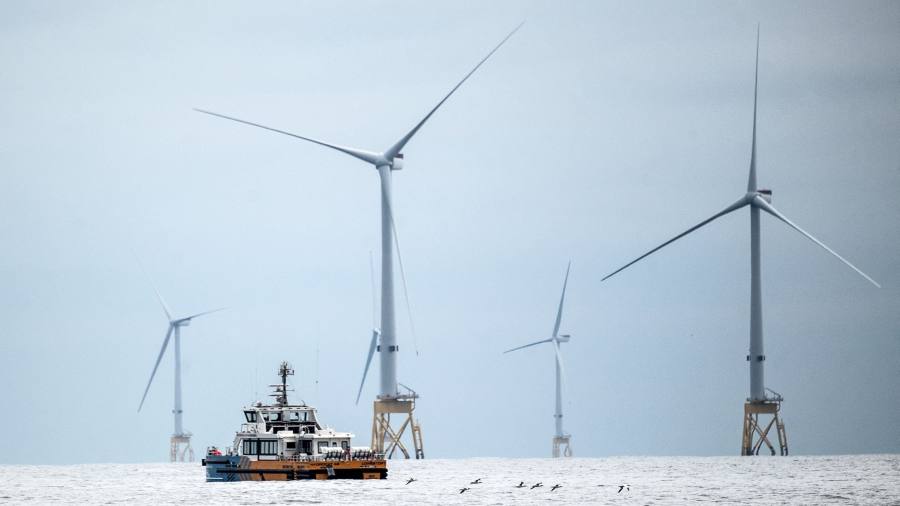
Receive free UK politics updates
We’ll send you a myFT Daily Digest email rounding up the latest UK politics news every morning.
The UK renewables industry has warned of low or even no uptake in the latest auction of state contracts for offshore wind projects with developers deterred by rising costs, in the latest blow to the government’s decarbonisation plans.
Ministers are due to announce the results on Friday for this year’s round of subsidies for renewable energy projects, which guarantee a minimum price per unit of electricity generated and are a key tool in reaching the goal of net zero by 2050.
The government has set a target to more than triple offshore wind capacity by 2030 from about 14GW to 50GW. The Climate Change Committee, the government’s independent climate adviser, has described the technology as the “backbone” of the future energy system.
Ana Musat, executive director for policy at trade group Renewable UK, said she expected “very little” in this year’s auction from developers, who have warned the maximum price on offer from the government is too low to offset rising costs.
“It could be the case that we get nothing, or it could be that we get the lowest levels of offshore wind clearing that we’ve seen since about 2015,” she warned.
“I think it will be very concerning because, obviously, we have really clear targets for offshore wind . . . And if we’re not building year-on-year, I think it’s going to be very difficult to achieve that,” she added.
Projects in the UK are subsidised by so-called “contracts for difference”, in which the government guarantees wind developers an inflation-linked fixed price for 15 years through an annual auction.
The UK’s offshore wind industry has grown rapidly over the past decade and is the world’s second-largest behind China, supplying about 11 per cent of the UK’s electricity in 2021. But it has suffered a series of recent setbacks as developers have been hit hard by surging costs globally.
In July, Vattenfall suspended work on one of the country’s biggest offshore wind farm projects, blaming surging costs of up to 40 per cent. The Swedish developer said it was no longer viable under the price guaranteed in the contract it was awarded last year.
Developers have repeatedly warned that the maximum price in this year’s auction, which is just under a fifth higher than last year’s guaranteed price, was too low given the cost inflation. Contracts are available for about 5GW of offshore wind at a maximum of £44 per MWh in 2012 prices.
Alistair Phillips-Davies, chief executive of SSE, one of Britain’s largest renewable energy producers, said the government needed to “fix [the contract round] if it’s the problem that everyone expects it to be at the end of the week”.
In a letter to the government last month, trade body Scottish Renewables said there was a “real risk” that the auction would fail to secure the investment needed from the industry.
In August, Mads Nipper, the chief executive of Orsted, the world’s largest offshore wind developer, warned the government would struggle to find bidders for new projects in this year’s auction.
The government said it remained committed to expanding offshore wind capacity. “The UK is home to the world’s four largest offshore wind farms and we have attracted £120bn investment in renewables since 2010, with a further £100bn in private sector investment expected by 2030 — supporting up to 480,000 jobs.”